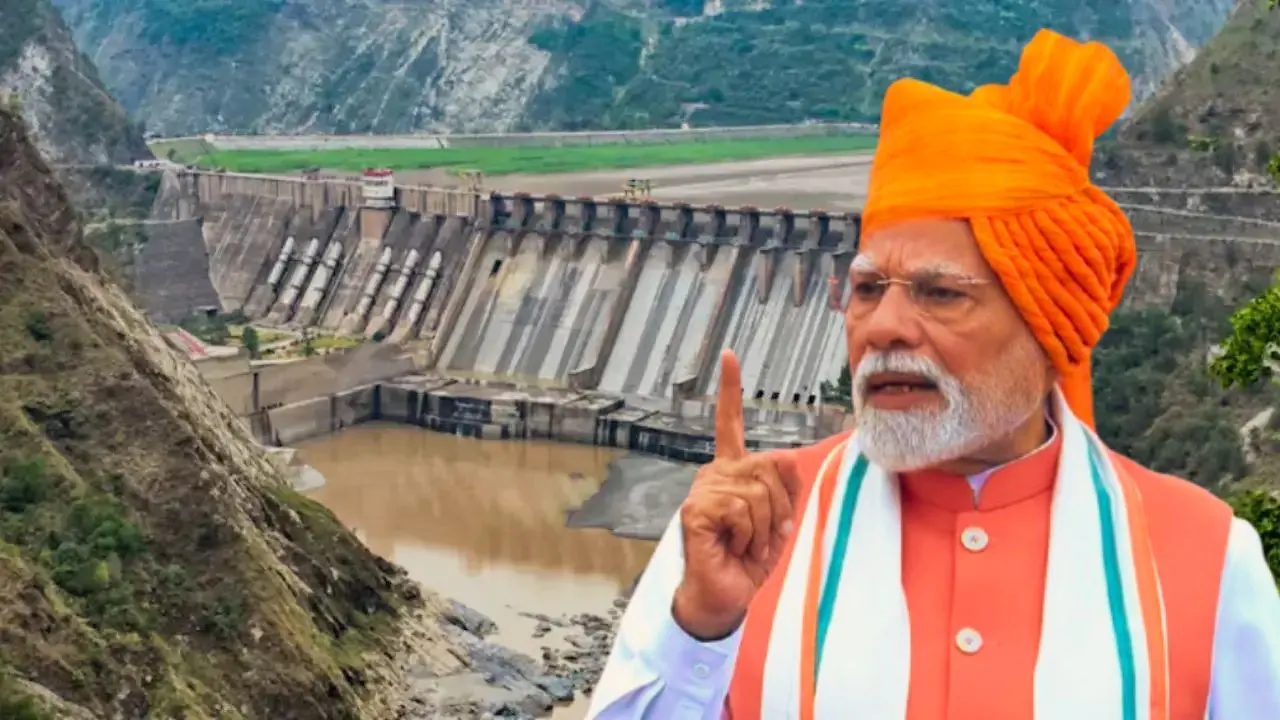PM Modi calls the Indus Waters Treaty “unjust”, vows to prioritise India’s farmers over Pakistan in historic Independence Day address.
Prime Minister Narendra Modi used his Independence Day speech from the Red Fort to deliver a sharp criticism of the Indus Waters Treaty (IWT), calling it a “one-sided” and “unjust” arrangement that has deprived Indian farmers for decades. Signed in 1960 between then Prime Minister Jawaharlal Nehru and Pakistani President Ayub Khan, the treaty, mediated by the World Bank, divided control of the Indus river system between the two nations.
According to Modi, the pact allowed rivers originating in India to irrigate fields in Pakistan while large parts of Indian farmland remained dry. “The waters that belong to India will be used by India, for India’s farmers alone. We will not endure an arrangement that deprives our farmers any longer,” he said, adding, “Blood and water will not flow together.”
“A Blunder That Harmed Farmers for Decades”
Modi went further, accusing Nehru of agreeing to conditions that undermined India’s rights over its own water resources. He revealed that the treaty even prohibited India from desilting certain dams without Pakistan’s consent, with the gates of one dam welded shut to prevent accidental opening.
“This agreement was against the country. Our dams, our water — but Pakistan’s decision,” Modi said, adding that Nehru later admitted to making a mistake but hoped it would pave the way for solving other disputes. Modi argued that such diplomacy ignored the long-term needs of Indian farmers, resulting in “unimaginable losses” over the last seven decades.
Pakistan Pleads for Restoration of Treaty
The suspension of the IWT has triggered a severe water crisis in Pakistan. Reports suggest that Syed Ali Murtaza, Secretary of Pakistan’s Ministry of Water Resources, sent four letters to India urging it to reinstate the pact. These appeals have so far been rejected, with the Ministry of External Affairs (MEA) forwarding the requests but standing firm on the suspension.
MEA spokesperson Randhir Jaiswal advised Pakistan to “temper its rhetoric,” warning that any misadventure would bring “painful consequences.” His remarks came amid heightened tensions following repeated anti-India statements from Pakistani leaders.
Escalation After Pahalgam Attack
India’s decision to put the treaty in abeyance came after the Pahalgam terror attack, which Delhi blames on Pakistan-backed groups. In addition to freezing the IWT, India suspended visa services with Pakistan and closed the Attari border.
The move has been met with strong reactions across Pakistan. Former foreign minister Bilawal Bhutto Zardari warned that any attempt to restrict Pakistan’s access to Indus waters could lead to war. He vowed that the country would “confront” India if the river’s flow was disrupted.
Legal Dispute Over River Rights
Tensions were further inflamed when the Court of Arbitration in The Hague issued a ruling affirming Pakistan’s “unrestricted use” of the Western rivers under the treaty. India rejected the decision outright, questioning the court’s jurisdiction and maintaining that its pronouncements have “no legal standing.”
Jaiswal reiterated that the treaty’s suspension is a “sovereign decision” made in response to Pakistan’s continued sponsorship of cross-border terrorism.
A New Phase in India–Pakistan Water Dispute
The suspension of the Indus Waters Treaty marks a significant shift in India’s approach to dealing with Pakistan. Modi’s Independence Day warning, coupled with military actions like Operation Sindoor — which dismantled terror networks in Pakistani territory — signals a firmer stance that blends water security with national security.
With Pakistan facing a mounting water shortage and India determined to reclaim control over its share of river resources, the decades-old water-sharing framework stands on the brink of collapse. For New Delhi, the message is clear: India’s rivers will serve its people first, and any threat or provocation will be met with decisive action.
Also Read- Will the Upcoming 8th Pay Commission Deliver a Big Salary Hike for Central Government Employees?
Also Read- RRB NTPC Admit Card 2025 LIVE: How to Download and Exam Day Tips

